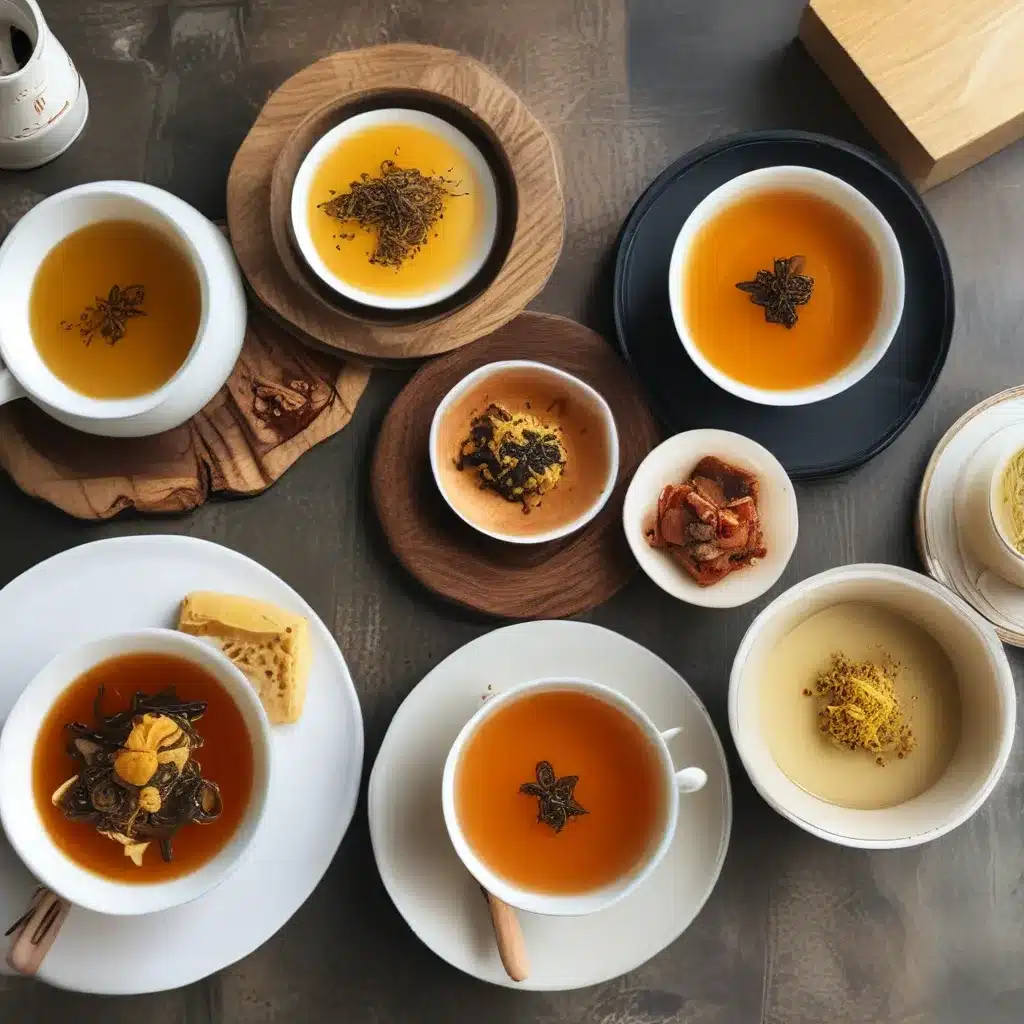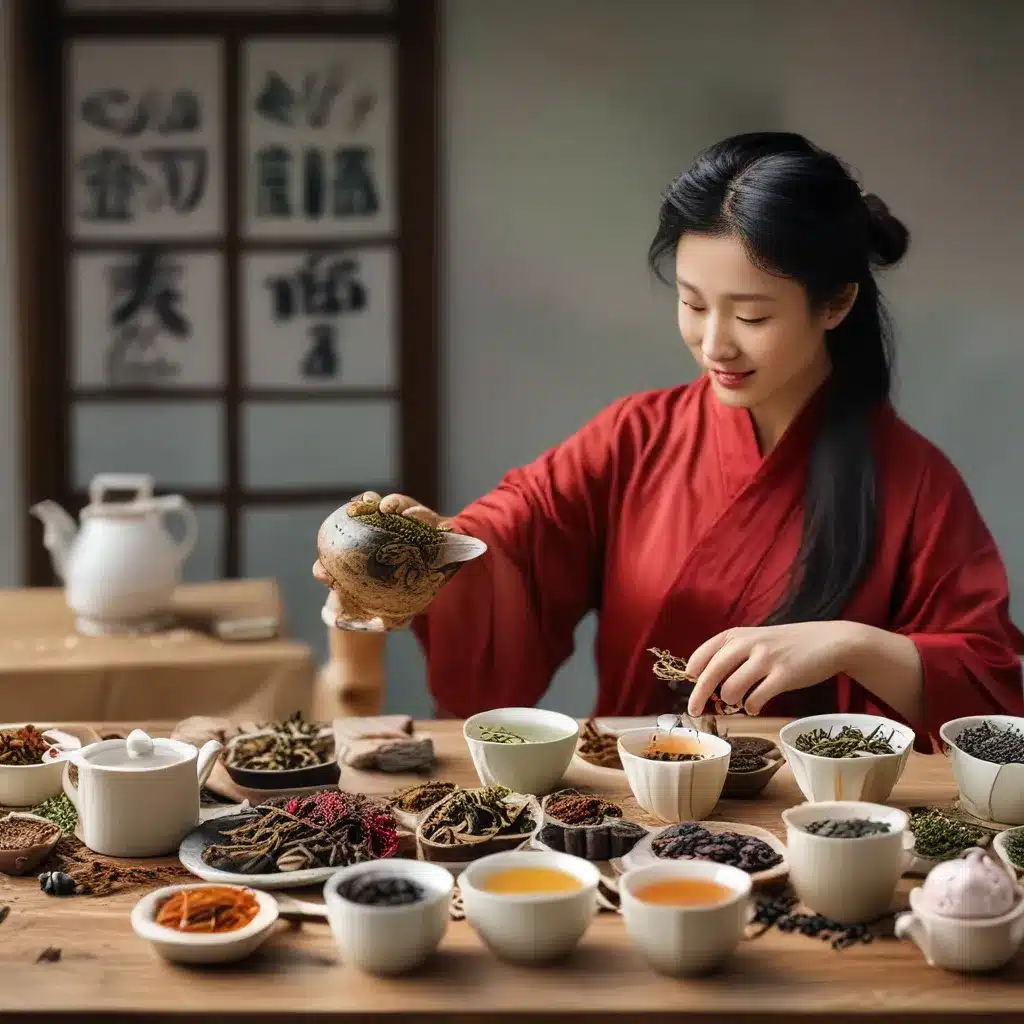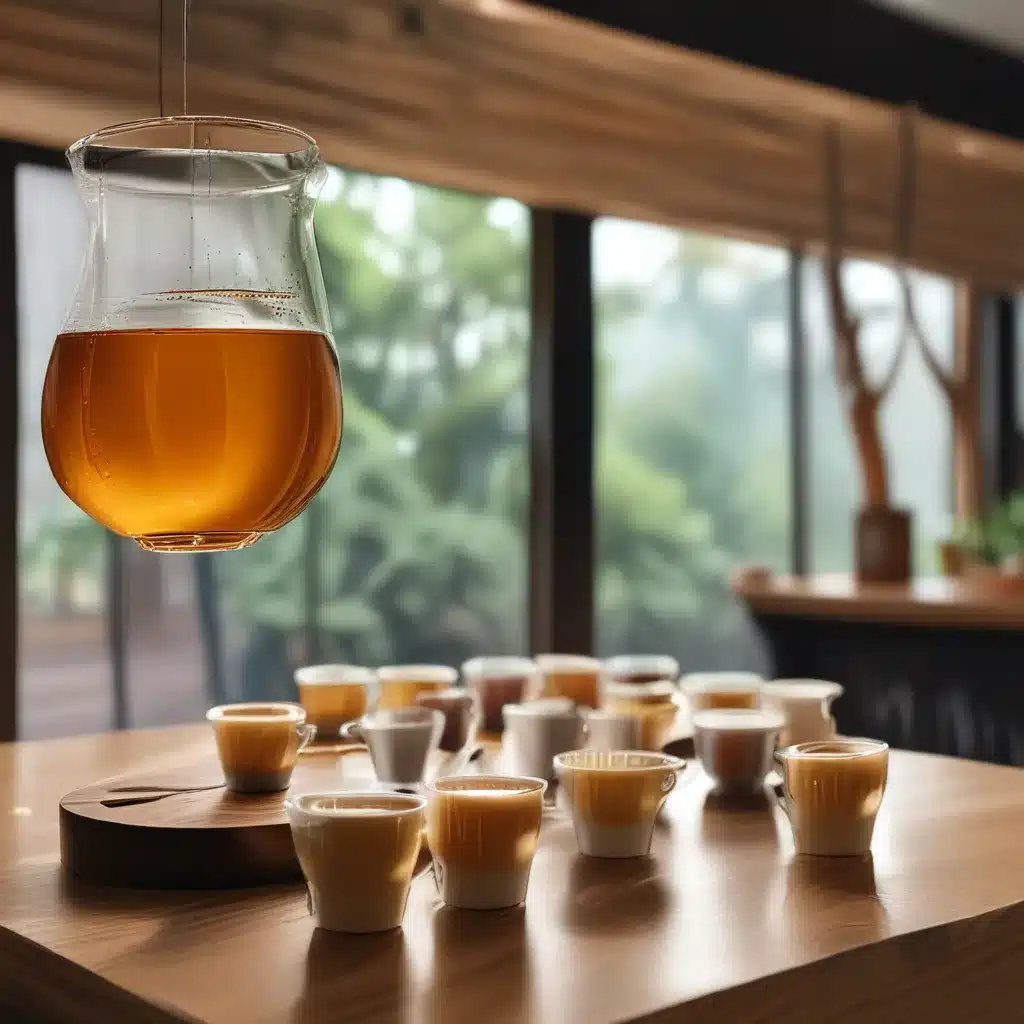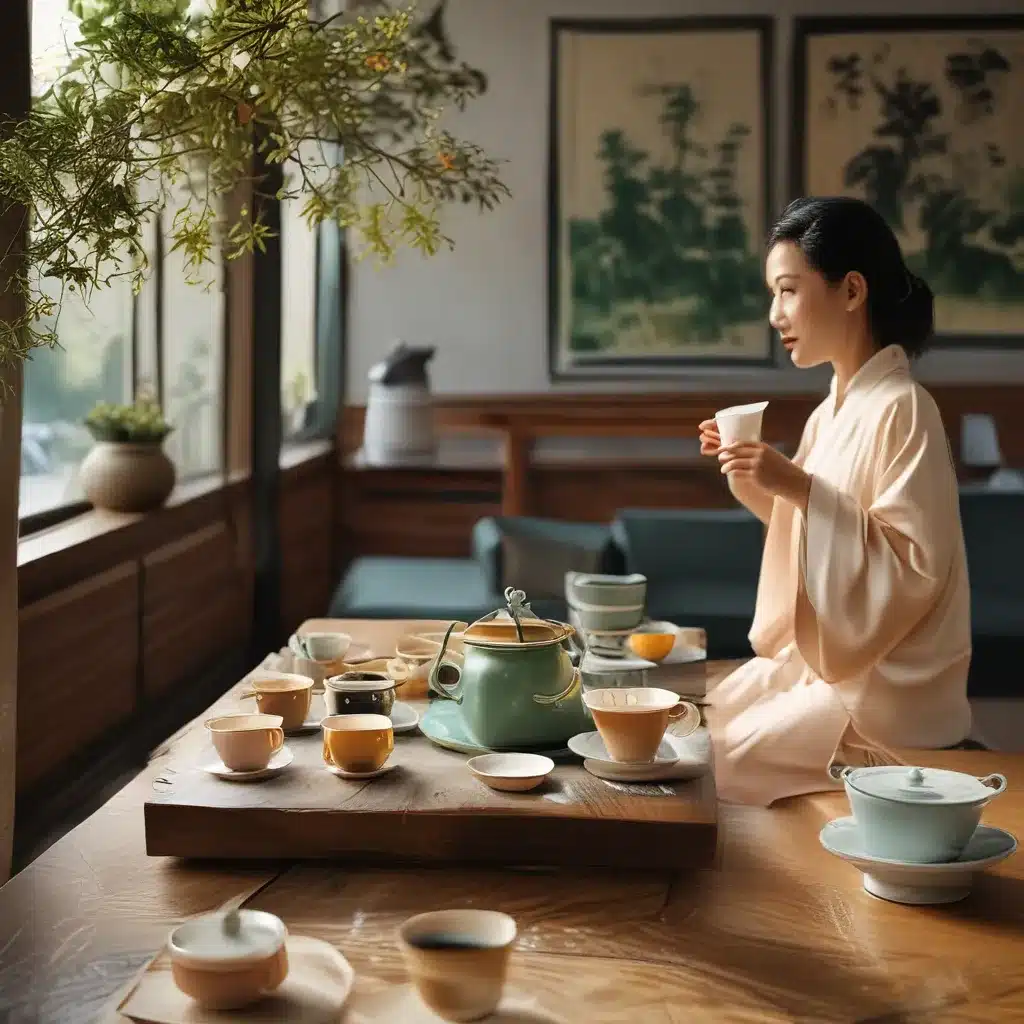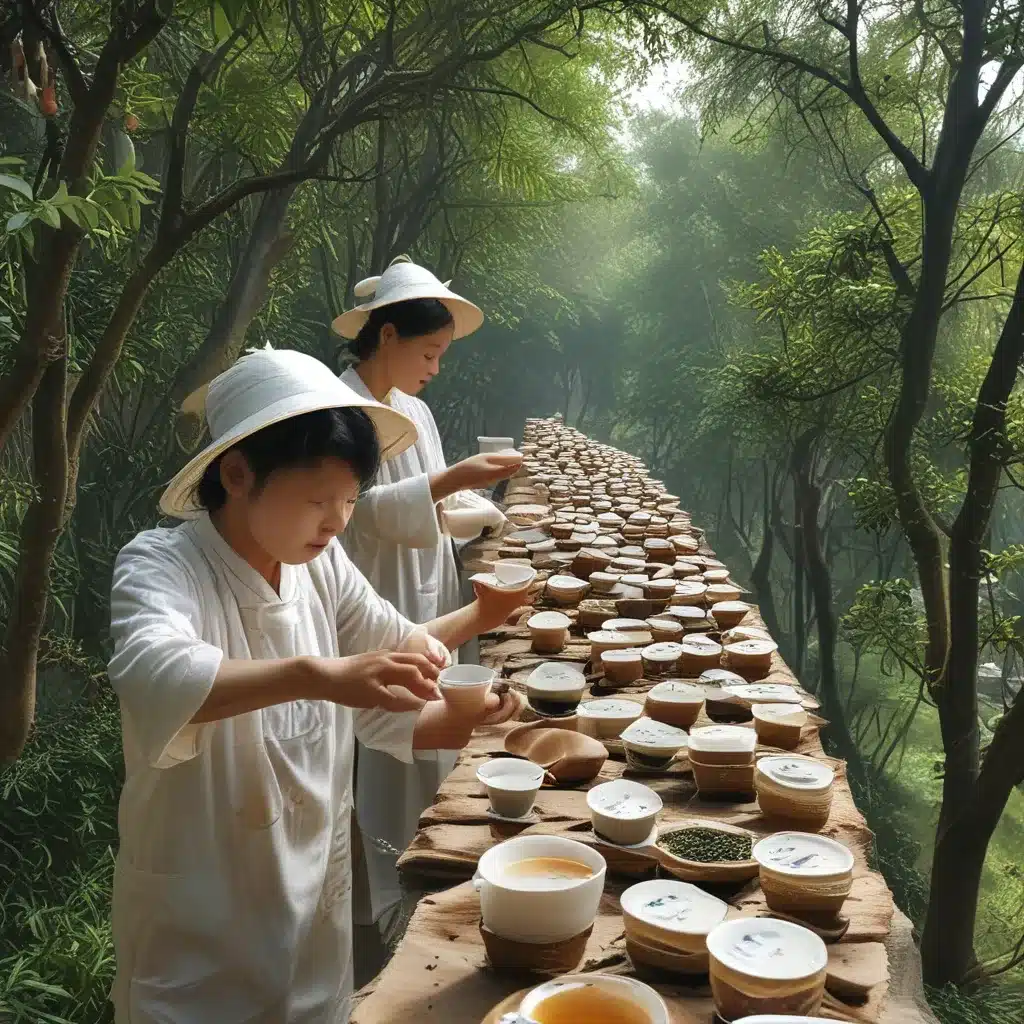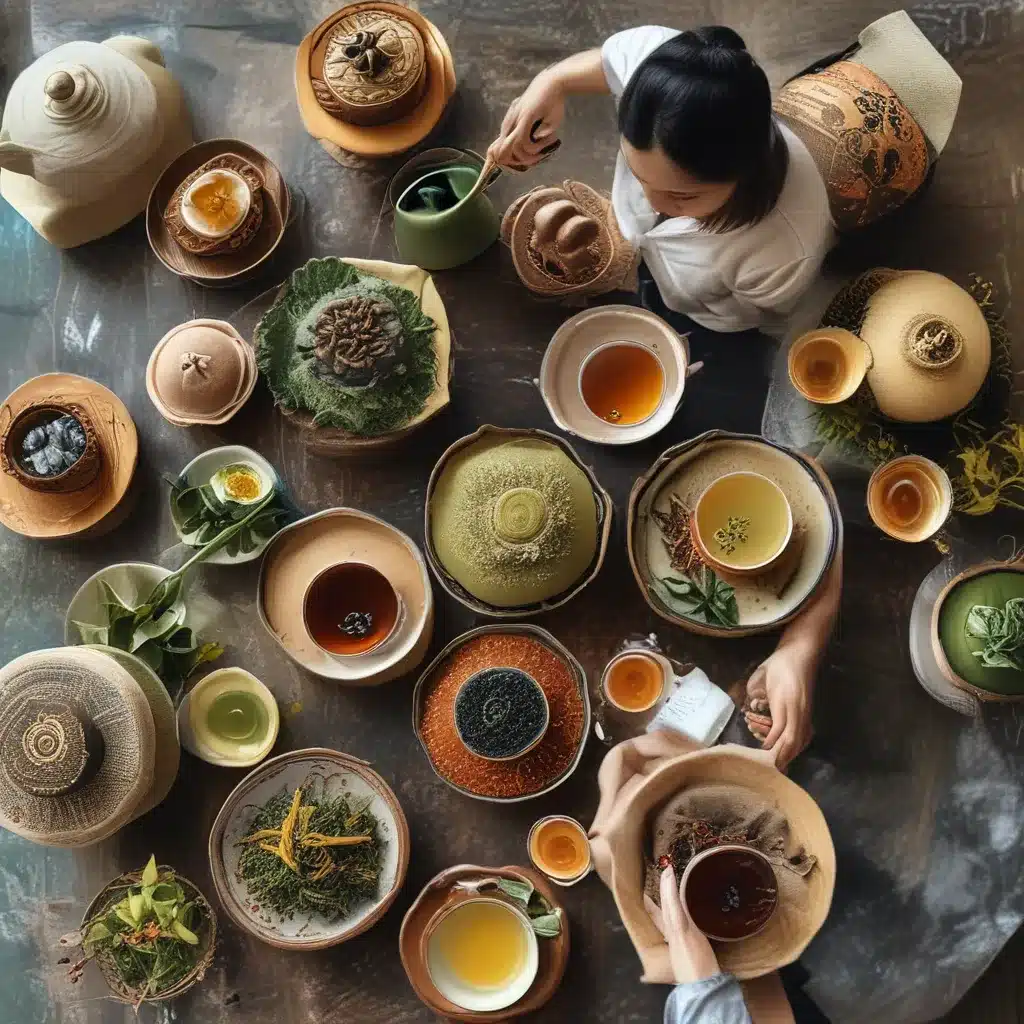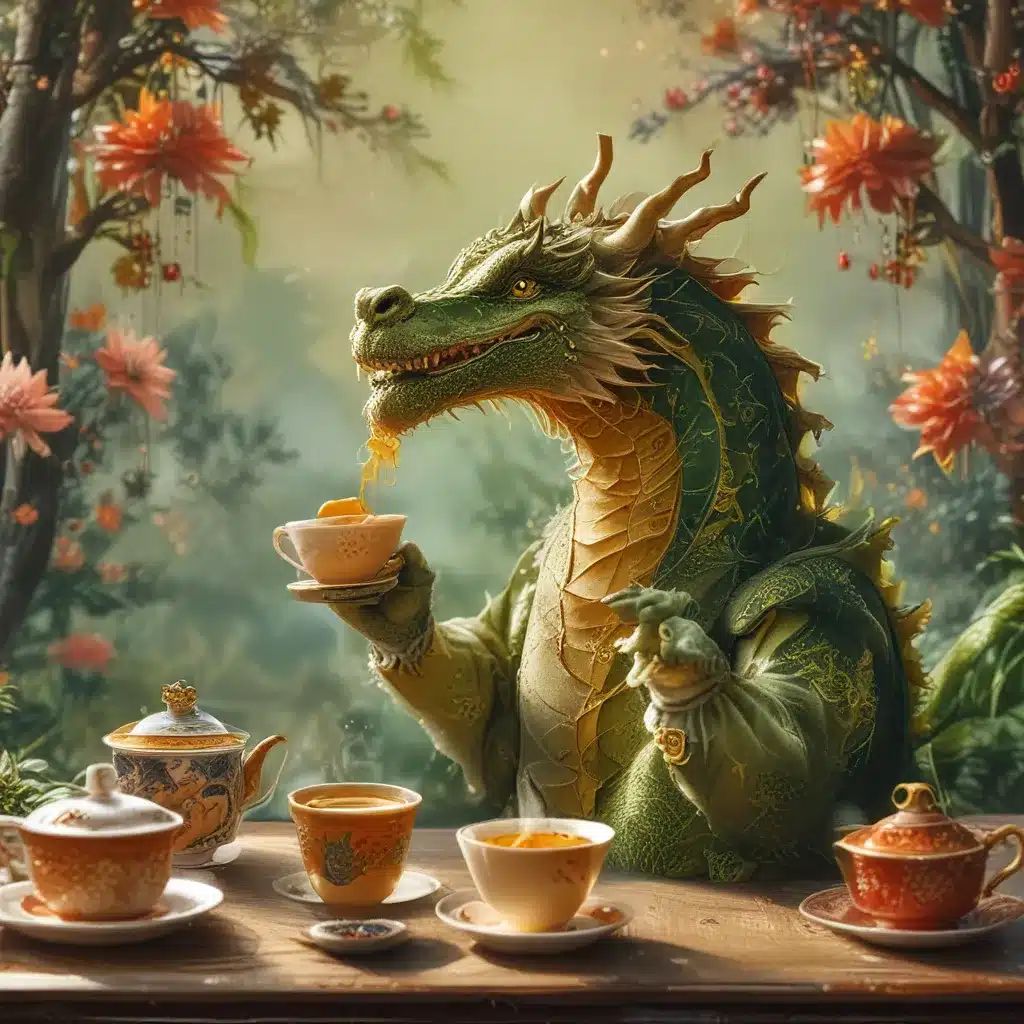
A Moment of Reflection
As I sit here by the window, gazing out at the bustling streets of Shanghai, I can’t help but feel a sense of tranquility wash over me. It’s as if the city’s frenetic energy has been momentarily stilled, replaced by the soothing aroma of freshly brewed tea wafting through the air. This, my friends, is the magic of Teaism – a centuries-old art form that has captivated the hearts and minds of the Chinese people, and now, it has enraptured me as well.
You see, I didn’t always appreciate the nuances of tea. In fact, I’ll admit that for the longest time, I treated it as nothing more than a simple beverage to be hastily consumed, a quick fix to quench my thirst. But that all changed the day I stepped through the doors of One Dragon Restaurant, a renowned establishment that has made it its mission to elevate the art of tea appreciation to new heights.
Discovering the Depths of Tea
As I settled into the cozy, understated surroundings of the tea lounge, I couldn’t help but feel a sense of anticipation. The air was thick with the scent of jasmine, green tea, and an array of other fragrant blends, each one promising a unique sensory experience. It was then that I met Lao Wang, the resident tea master, whose passion for his craft was palpable from the moment he introduced himself.
Lao Wang’s eyes twinkled with excitement as he guided me through the history and philosophy of Teaism, tracing its roots back to the Tang Dynasty and the seminal work of Luwuh, the “First Apostle of Tea.” I listened, enraptured, as he wove tales of Zen Buddhist monks and Taoist sages who found profound meaning in the simple act of brewing and sipping tea. It was as if he were opening a door to a world I never knew existed, a world where the “liquid amber” in my cup held the power to transport me to realms of tranquility and self-reflection.
The Art of Mindful Tea Appreciation
As Lao Wang meticulously prepared each brew, I couldn’t help but notice the care and attention he lavished upon every step. He spoke of the importance of water temperature, leaf-to-water ratio, and the subtle interplay of aromas and flavors that unfolded with each sip. It was a far cry from the hurried tea-making I had grown accustomed to, and I found myself slowing down, allowing my senses to fully engage with the experience.
“Tea is a work of art,” Lao Wang proclaimed, “and it needs a master hand to bring out its noblest qualities.”
And a master hand he had, indeed. As I savored the first sip of a delicate Longjing tea, I was struck by the delicate balance of sweetness and bitterness, the way the flavors danced across my palate. It was a revelation, a moment of pure sensory delight that seemed to transport me to the verdant slopes of Hangzhou, where the leaves had been carefully harvested and crafted.
The Zen of Tea
But Lao Wang’s teachings went beyond the technical aspects of tea preparation. He spoke of the deeper philosophical underpinnings of Teaism, drawing parallels between the art of tea and the principles of Zen Buddhism and Taoism. The tea room, he explained, was a sanctuary, a space where one could escape the “sordid facts of everyday existence” and immerse oneself in the “beautiful foolishness of things.”
“The tea-room was an oasis in the dreary waste of existence where weary travelers could meet to drink from the common spring of art appreciation,” Lao Wang said, his voice soft and contemplative.
As I sipped my tea, I found myself reflecting on the beauty of simplicity, the power of suggestion, and the importance of being fully present in the moment. The tea ceremony, Lao Wang revealed, was not merely a series of steps to be followed, but a delicate dance of the senses, a meditation on the fleeting nature of existence itself.
Embracing the Impermanence of Tea
It was in this moment that I truly understood the essence of Teaism, the way it embraced the concept of impermanence and change. Just as the tea leaves unfurl and release their essence, only to be consumed and disappear, so too does our own existence ebb and flow, a constant cycle of growth, decay, and renewal.
“Change is the only Eternal,” Lao Wang said, his gaze meeting mine with a knowing smile. “Why not as welcome Death as Life?”
As I sat there, cradling my delicate teacup, I felt a profound sense of connection, not only to the ancient traditions of China but to the very fabric of the universe itself. The tea, with its ability to soothe, stimulate, and transport, had become a conduit for a deeper understanding of the human experience, a reminder that even in the midst of chaos, there is beauty and tranquility to be found.
Honoring the Natural World
And it was not just the tea itself that captivated me, but the holistic approach that Lao Wang and the One Dragon Restaurant embraced. From the thoughtfully curated selection of artisanal teaware to the carefully tended gardens that supplied the restaurant’s fresh produce, there was a deep reverence for the natural world that permeated every aspect of the experience.
“The ideal lover of flowers is he who visits them in their native haunts,” Lao Wang said, his gaze drawn to the vibrant blooms outside the window. “The tea-master deems his duty ended with the selection of the flowers and leaves them to tell their own story.”
It was a reminder that the art of tea appreciation is not just about the beverage itself, but about cultivating a deeper connection with the rhythms of nature, about finding beauty in the fleeting moments that so often escape our notice.
Sharing the Gift of Tea
As I prepared to depart, I couldn’t help but feel a sense of gratitude and wonder wash over me. Lao Wang had not just taught me the intricacies of tea preparation, but had opened my eyes to a whole new way of seeing the world. I knew that the lessons I had learned that day would stay with me, a constant reminder to slow down, to savor the present moment, and to find joy in the simple things.
And so, as I made my way back out into the bustling streets of Shanghai, I couldn’t resist the urge to share my newfound appreciation for tea with those around me. I stopped at a local tea shop, carefully selecting a few of the finest blends, and even bought a beautiful ceramic teapot to use at home. It was my way of honoring the gift that Lao Wang and the One Dragon Restaurant had bestowed upon me, a small act of paying it forward in the hope that others might discover the transformative power of tea.
For in the end, that is the true essence of Teaism – a celebration of the art of living, a reminder that the greatest joys can be found in the smallest of moments, if only we have the eyes to see them.

